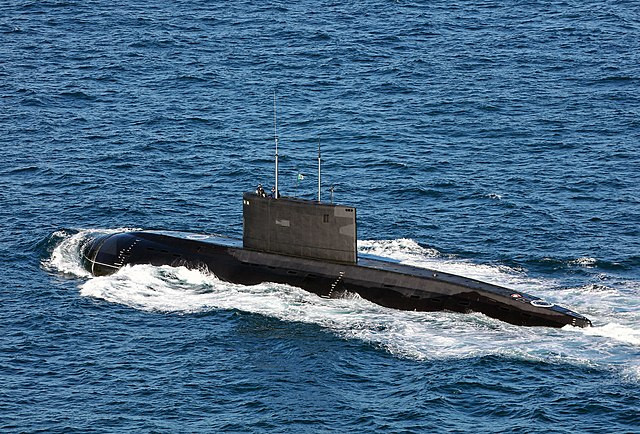A flotilla of Russian naval vessels, including the state-of-the-art frigate Admiral Gorshkov and the nuclear-powered submarine Kazan, entered Havana harbor on Wednesday morning, marking a significant display of military strength as Moscow reinforces its Cold War-era ties with Cuba. The convoy's arrival underscores the deepening relationship between the two nations against a backdrop of escalating geopolitical tensions over the war in Ukraine.
Upon entering the harbor, the Admiral Gorshkov fired a 21-gun salute, reciprocated by cannon fire from an 18th-century colonial fort in Havana. This marks the most substantial show of force by Russia in Cuba in recent years, with the Kazan, a rescue tug, and an oil tanker accompanying the frigate.
"The arrival of these ships is a powerful signal of our enduring friendship with Cuba," a Russian diplomatic source told CNN, indicating that Cuban citizens would be allowed to tour the Admiral Gorshkov starting Thursday.
The presence of these vessels, particularly the Kazan, has drawn significant attention from the United States. Although U.S. officials assess that the Kazan is not carrying nuclear weapons, the convoy's journey to Cuba was closely monitored. The U.S. Navy deployed ships, including the USS Truxtun and the USS Donald Cook, as well as a P-8 Poseidon reconnaissance plane, to track the Russian flotilla's movements across the Atlantic.
"The whole time, we've been monitoring their movements, which is a normal part of our maritime homeland defense," a U.S. official confirmed, emphasizing that all vessels, including the Russians, have remained in international waters.
Despite the heightened surveillance, U.S. and Cuban officials have downplayed the significance of the visit. "The visits by naval units from other countries are a historical practice of the revolutionary government with nations that maintain relations of friendship and collaboration," stated Cuba's Foreign Ministry. Both Havana and Washington insist that the presence of the Russian ships poses no threat to the region.
The timing of this naval visit is notable, occurring just weeks after President Joe Biden permitted Ukraine to use U.S.-supplied weapons to strike inside Russia. Analysts interpret the arrival of the Russian convoy as a calculated move by Moscow to remind Washington of its capabilities within the U.S.'s sphere of influence.
"The visiting Russian warships are Putin's way of reminding Biden that Moscow can challenge Washington in its own sphere of influence," commented William Leogrande, a professor at American University.
The Cuban government, grappling with its most severe economic crisis in decades, increasingly relies on Russian support. Russia recently delivered 90,000 metric tons of oil to Cuba to alleviate severe fuel shortages. This assistance has been part of broader promises by Moscow to aid Cuba in various sectors, including sugar production, infrastructure, renewable energy, and tourism.
The historical context looms large over this visit. The Cuban Missile Crisis of 1962 remains a poignant memory when the Soviet Union's deployment of ballistic missiles in Cuba brought the world to the brink of nuclear war. Today, the renewed military and economic ties between Cuba and Russia evoke echoes of that tense period, though driven more by economic necessity than ideological alignment.
Cuban President Miguel Diaz-Canel's frequent visits to Moscow and recent attendance at a military parade hosted by President Vladimir Putin highlight the strengthening of this alliance. "Moscow can always count on Havana's support," Diaz-Canel declared during his May visit.
As the Russian naval vessels dock in Havana until June 17, their presence symbolizes a deepened alliance amid global tensions. The visit comes at a time when Cuba faces significant internal challenges, including widespread shortages of essential goods and growing public discontent.
"The ships' arrival has echoes of the Cold War, but unlike the first Cold War, the Cubans are drawn to Moscow not by ideological affinity but by economic necessity," noted Leogrande.






